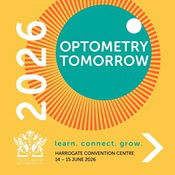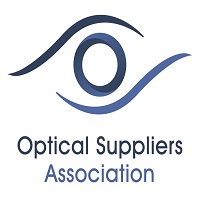audiology
A new study by TympaHealth, has uncovered concerning insights into ear and hearing health among adults,
Over a quarter of adults unaware of in-store ear and hearing health tests at pharmacies, risking additional health and wellbeing issues
A new study from UK leader in ear and hearing health, TympaHealth, has uncovered concerning insights into ear and hearing health among adults, revealing significant social and psychological barriers that are preventing crucial hearing care interventions.
The study, which surveyed over 1000 adults from 18 to 65 and over, has revealed a lack of awareness among respondents that hearing loss could be checked by their local pharmacy, with over a quarter (28%) stating that they didn’t know this was a potential option.
In addition, over half (53%) of people reported they were unaware of the long-term health implications of unaddressed hearing loss, leaving people at risk of additional health and wellbeing issues like social isolation and dementia.
While more than one in three people (35%) have experienced hearing loss, and over half (56%) stating it has had a negative impact on their mental health, over one in three (35%) have never had their hearing checked.
The study pinpoints key obstacles preventing people from seeking ear and hearing health care:
- The survey revealed that waiting list duration was a key barrier for 28% of people addressing ear and hearing health.
- Embarrassment also emerged as a primary deterrent, with 31% expressing concerns about potentially having to wear a hearing aid, viewing it as a barrier to seeking treatment.
- This was even higher for younger respondents, with 38% of 18-24- and 25–34-year-olds stating they would be worried about this, compared to 23% of 45–54-year olds and 19% of 55–64-year-olds.
- Over one in five (23%) of respondents cite social stigma around the association of hearing loss and aging as a reason for inaction, rising to 30% for those aged 25-34.
This is having a profound impact on wellbeing, as the research reveals the majority (53%) of people either occasionally or often avoid social situations due to hearing difficulties.
The data also shows a worrying lack of awareness among UK adults of the negative impact hearing loss can have on brain health, with over half (53%) of people reporting they’re unaware of the long-term health implications of unaddressed hearing loss. This rises to 57% for 18-24 year olds and 63% for 25-34 year olds.
This lack of awareness among younger generations is particularly concerning due to the preventative role that addressing ear and hearing health can play in reducing mental health difficulties and cognitive decline. Over half (53%) of all respondents said they were not aware at all about hearing loss being potentially linked to dementia, while over a quarter (28%) of young people said the same.
The Lancet found that the greatest risk factors associated with people developing conditions such as dementia are hearing impairment (7%) and social isolation (5%). Research by The University of Oxford, also found that building cognitive resilience at a young age will make the brain more robust and potentially better able to fight off conditions such as dementia in later life.
Dr Krishan Ramdoo, CEO & Founder of TympaHealth and ENT surgeon, said:
“Our research findings show that ear and hearing health is being overlooked by people, due to a variety of factors, but perhaps most concerningly people are worried about the social implications of addressing their ear and hearing health.
“It’s a myth that ear and hearing health only impacts older people. It can affect people at any age. Early and timely intervention makes a significant difference to people’s lives, it can prevent long term issues from arising, including poor mental health and cognitive decline, and ensure people can fulfil their potential.
“We are committed to raising awareness, and providing the critical assessment and support needed to help young people take charge of their hearing health, while alleviating pressure on the healthcare system.”
Professor Adrian Davis OBE, Technical advisor for the World Health Organisation (WHO), said:
“These findings underscore the urgent need to destigmatise hearing health and create supportive local people friendly environments that encourage auditory well-being.
“This new research serves as a critical wake-up call, emphasising the importance of early hearing protection and timely early interventions. By prioritising the psychological and social barriers, NHS and private sector healthcare providers and community leaders can help adults maintain their ear and hearing health and quality of life.”
Mitan Katelia, Business Development Manager at Pearl Chemist Group based in Fulham in London, said:
“This research clearly highlights the negative and wide-ranging impact that not taking care of ear and hearing health can have on a person.
“As a pharmacy we’ve witnessed first-hand the health benefits that easily accessible ear and hearing health tests can bring for our customers, from immediately relieving their self-doubt and isolation, to helping them come up with a plan to manage their ear and hearing health and take back control of their happiness.
“We encourage everyone to take proactive steps in protecting their hearing, working with healthcare providers such as local pharmacies to gain fast access to critical treatment, as well as encouraging healthcare leaders to consider where they can fit ear and hearing health into their agenda, and how healthcare providers can be part of the solution.”




















